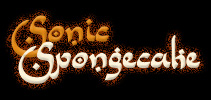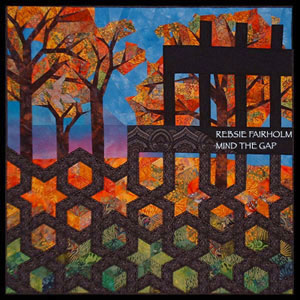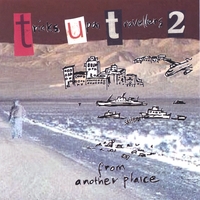 |
|||||||
| in association with | |||||||
Rebsie Fairholm: Mind The Gap Hailing from Merry old England, well Cheltenham to be more precise, Rebsie Fairholm has created a shimmering masterpiece with her first solo album “Mind The Gap”. With a folk heart, the album cross into psych territory on a regular basis, taking in a west-coast vibe and a healthy dose of English humour as well. _ _ _ _ _ _ _ _ _ _ _ _ _ _ _ _ _ _ _ _ _ With all the delicious nuances found in Rebsie Fairholm’s music, a mere folk classification could be considered somewhat misleading and restrictive. “Mind the Gap,” a phrase most often heard in London’s tube stations, becomes a playful warning as to the amalgamated historical portents one is about to engage in while listening to this stunning CD. Fairholm’s voice is firmly rooted in a pre-Roman Britain with its sprites, pixies, and Celtic mythos. And what a voice it is – pure, unadorned, free from over-indulgence and the multi-affectations that riddle so many voices of our era. It is a story-telling voice from the sylvan woodlands, beautific in its slight shyness and soft allurement – like silk to the bruises of the modern world. One will encounter lush retellings of old tales, from the ethereal waltzes of “Round Window” and “Blackbirds & Thrushes” to the Gaelic elegy found in “MacCrimmon’s Lament.” But Fairholm does not stop at being some sacred relic from Britain’s utopian past – much of her music is sprinkled with marvelous modern interpolations. The Gothic “Unquiet Grave” and “She Moves through the Fair” are treated most exquisitely with an Eno/Aphex electronic ambience, bringing the listener to the precipice of the aforementioned ‘gap.’ Edgar Allan Poe’s ominous poem, “Spirit of the Dead,” is rendered with a lithe sense of performance poetics with all the correct sonic embellishments subtly applied by the singer. The CD also includes a quite magical adaptation of an early and underappreciated Pink Floyd song, “Julia Dream,” where Roger Water’s searching voice is replaced by Fairholm’s knowing one. Out of respect for this mesmerizing work, I shall refrain from making too many convenient comparisons, although Fairholm would keep good company with Kate Bush, Emma Anderson (of Lush), Sheila Chandra, Emiliana Torrini, Sally Oldfield, Maggie Reilly, and the Mediaeval Baebes. Cleverly, she surrounds herself with strong musicians as evidenced by the mandolin, classical guitar, slide guitar, and violin heard on “Mind the Gap.” This is a thoroughly worthwhile musical adventure and I urge you to answer Fairholm’s delightful siren call. - (Daniel Staniforth) _ _ _ _ _ _ _ _ _ _ _ _ _ _ _ _ _ _ _ _ _ I’ve described Rebsie’s vocals before and they form a major part of this album, appearing on every track. Her vocals seem to have a certain power to touch people on a very emotional level. Organ magazine described her as having "the most beguiling of voices – she really is something special", whilst others have compared her to Loreena McKennitt and a lower-pitched Kate Bush. For me personally the strongest similarity in the vocals is with Vashti Bunyan, even though she’s not one of Rebsie’s influences, and if you like the ethereal voice of the so-called Godmother of Freak folk then you should love Rebsie too. Some of Rebsie’s actual influences that perhaps do come through in the music on this album include Fairpoint Convention, the aforementioned Kate Bush, and the early whimsical psychedelic work of Pink Floyd (in fact, one of the covers on Mind The Gap is Floyd's “Julia Dream”). Those influences and some of the comparisons I made earlier give some insight into the sound of Mind The Gap: it’s broadly a folk album, with one foot definitely in the folk traditions of England, but it’s also a contemporary album that subtly sidesteps into genres such as folk noir, psych folk, and folk rock, plus with its occasional nods towards stylistic and thematic innovation, certain tracks might be termed progressive folk or even folktronica (and her version of the English folk song “The Unquiet Grave” arguably combines the two, sounding like the offspring of Gryphon and Tunng). Much of the album works around Rebsie’s voice but the instrumental backing is important too, adding additional layers and textures, both modern and traditional. Rebsie herself provides occasional piano, Celtic harp, 12-string acoustic guitar, electric guitar, bodhrán and electronics/synth, and additional instrumentation comes from William Shaw (mandolin, fiddle, slide guitar, electronics), Jason Gazda (didgeridoo), Steve Lang (electric guitar, 6-string acoustic guitar) and Martyn Kember-Smith (electric fiddle). There are also some very special guests on the album: folk fans might be impressed by the appearance of Steafan Hannigan who provides Uillean pipes on “Julia Dream”, adding a classy and unique twist to that cover version, whilst prog rock fans will no doubt be excited by the presence of Phideaux Xavier who provides guitars on “Leafblower”. If that sounds like an eclectic mixture of musicians and instruments then it’s a reflection of the content of the album as a whole. Whilst there are certain lyrical, musical and philosophical themes on Mind The Gap, that doesn’t mean that Rebsie hasn’t experimented with the sounds and styles on the album. Of the eleven songs there are too many highlights to talk about here, but Rebsie’s own composition, “Round Window” is a captivating opener, reminding me musically of the Cocteau Twins waltzing with The Poozies; a beautiful song, with a wonderful choice of instruments, a lovely arrangement, and moving lyrics too. “Blackbirds & Thrushes” is a traditional tune with rather saucy lyrics arranged as a wonderful piece of psychedelic folk, whilst “Spirits of the Dead” is a chilling spoken word piece with Rebsie reading a Edgar Allen Poe poem over some highly atmospheric but minimalist musical backing. “Leafblower”, Rebsie’s second composition on the album, follows directly after “Spirits of the Dead” and couldn’t be more different as she takes issue with her next-door neighbour whose love of powertools often thwarts her recordings. “Leafblower” is a great and decidedly English rock track, very different from the rest of the album, but it still sits comfortably with the ancient folk songs and haunting psychedelic ballads. Phideaux’s contribution to the track adds an extra punch and the overall effect is like a Kirsty MacColl song with an Iron Maiden bassline. Rebsie’s cover of “Julia Dream”, an underrated Pink Floyd classic, is quite magical; true to the spirit of the original but artistically different enough to warrant doing the cover. The album ends with “She Moves Through The Fair”, and it provides as satisfying a conclusion here as it did to the Imber EP. It’s a powerful song and this is a particularly impressive version which will send shivers down your spine. Mind The Gap then is almost like a spiritual experience, an album of death, the afterlife, ghosts, moral injustices, mystical otherworlds and noisy garden power tools. Listening to the album will take you to fascinating and mysterious new places, as well as taking you back in time to the distant past, and occasionally musically wrongfooting you just when you think you’ve got a handle on it, but it’s such a hypnotic and beguiling experience that you may not want to return to the real world. Ah, well, enjoy it while it lasts and then just stick the CD on again... (Epileptic Gibbon, Progressive Ears)
|
 |
|||
| An absolutely wonderful album's worth of entrancing whispered glowing heart-warming Celtic/old English (Pagan?) folk, embroidered with cleverly delicate instrumentation. Lush golden strings and seductive woodwind, haunting glowing beauty and Rebsie has the most beguiling of voices – she really is something special. Just beautiful, uncluttered, refreshing. Delicately arranged folk familiars (and a beautiful version of Pink Floyd’s Julia Dream). Calming, uplifting, ethereal and a slightly new feel on something very traditional and unashamedly rooted in very old ways – for fans, followers and lovers of Fairport Convention, Sandy Denny, the leaves turning golden orange and the Albion spirit that can still be found (beautiful artwork as well). (ORGAN magazine) |
||||
 |
||||
| To get a sense of her music, imagine soulfully sung, somewhat psychedelic settings of Celtic folk music, emanating from a soundscape that shares common ground with Brian Eno’s Another Green World and the twilight dreaminess of Mazzy Star. (Michael Kivinen) | ||||
Dick Langford & Tricks Upon Travellers 2: From Another Plaice This is a really worthwhile and enjoyable album. Although the lyrical content is very dark there's a kind of instinctive joy in the music itself and a lot of it is quite upbeat on the surface, with the more subtle depths coming out gradually on repeated listenings. The instrumentation is solid and crisp and bright, quite strongly rhythmic for the most part. There's some very chopsy bass playing, and the omnipresent electric fiddle is played with sensitivity and character. From what I can gather, this is a re-formed line-up of the original TUT band with Dick Langford the only common denominator. I suspect the departure of key members of the original band have forced Dick to step out into the limelight whether he wanted to or not, and in the process several latent talents have emerged and it's really enabled him to shine. His prowess as a guitarist has never been in dispute and there's plenty enough evidence on this album of his "rock god" credentials with superb playing on electric and acoustic. However there's a lot more of his own songwriting on this album, and he also takes on most of the lead vocals ... both of which bring new layers of subtlety and complexity to the TUT sound. It's not as high-speed as the previous TUT material nor as adrenalin-rushing, but has more of a poised energy and a subdued, controlled gracefulness, but still with plenty of pace and drive. Thoughtful and poignant lyrics combine with a very varied and imaginative range of musical ideas, so every song is unique and yet it all sounds like it belongs together on the same album. Dick's voice has a warmth of tone which is very appealing. His vocals are soulful and expressive in a way that really enhances these deep and intelligently written songs. What you get on this album are politically aware songs with depth and substance and which have enough musical interest on the surface to make them thoroughly enjoyable to listen to. Cleverly blended strands of electro-acoustic rock and folk are interwoven with new original ideas and the end result is delightful. |
 |
|||
|
|
|||